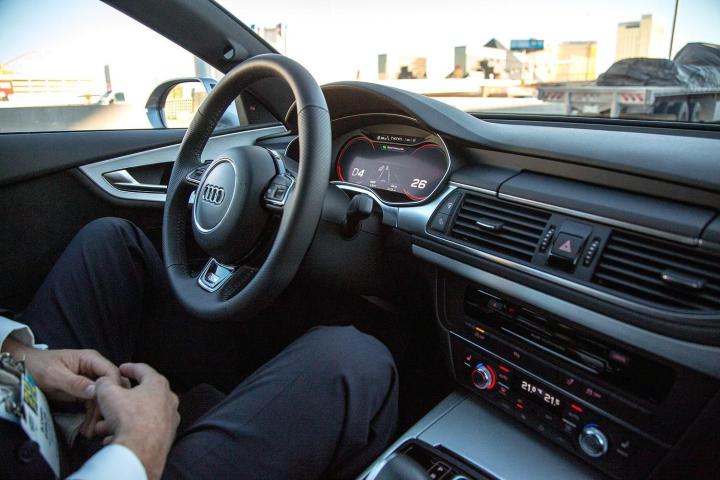
There is “concrete evidence” that ISIS is developing self-driving cars to use in place of suicide bombers, Mikko Hypponen, chief research officer of F-Secure, said in a speech at South by Southwest covered by Autoblog. He said the group even plans to put mannequins in cars and replicate a human body’s heat signature, to fool security systems into thinking a person is actually driving. Indeed, video of such a car surfaced back in January.
That car appeared to be remote controlled, but the fear is that terrorists could load a bomb into a self-driving car, set a destination, and send it on its way. That would reduce the need for volunteer suicide bombers, but still allow groups to carry out deadly attacks. The upside, if you could call it that, is that ISIS appears to be the only group capable of developing these weapons, according to Hypponen. However, this may not be the only destructive use of future self-driving cars.
Public demonstrations by security researchers, like the remote hacking of a Jeep last year, have led to concerns over security vulnerabilities in today’s software-intensive cars. That’s likely to become more of a concern as cars begin driving themselves. In 2014, the FBI’s Strategic Issues Group published a report that said autonomous cars “will have a high impact on transforming what both law enforcement and its adversaries can operationally do with a car.”
The report noted that self-driving cars could provide some benefits to cops, including increasing the “tactical performance of physical tasks that a person may be inhibited by while driving a car manually today,” and providing a greater margin of safety, but it also warned that autonomous tech could make a car “more of a potential lethal weapon than it is today.”
Whether its hackers or terrorists jury rigging autonomous car bombs, it just goes to show that every technology has a dark side. And while an outcome isn’t inevitable just because it was predicted in a report, it’s worth considering that as we race toward a future of self-driving cars.


